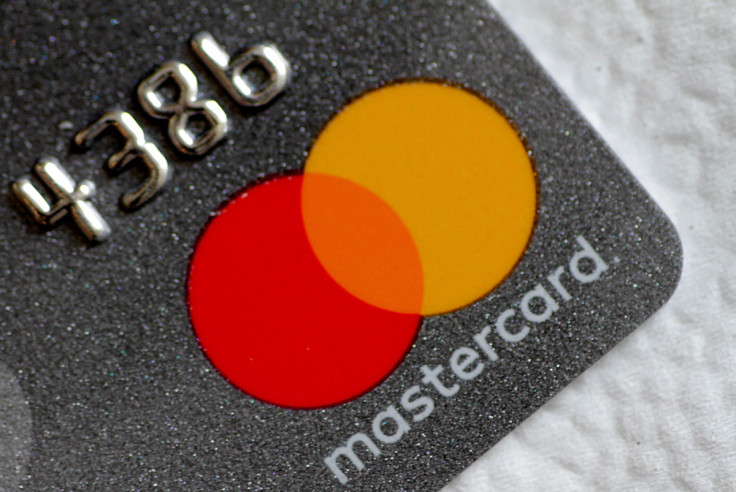Mastercard to Phase Out 16-Digit Card Numbers by 2030 in Move Towards Biometrics

In a major step towards combating identity theft, Mastercard has announced plans to eliminate 16-digit card numbers from credit and debit cards by 2030. This marks a shift towards biometric-powered transactions, reducing reliance on physical cards while enhancing security for consumers worldwide.
Who Will Experience the Change First?
Mastercard is rolling out its first numberless credit card in Australia through a partnership with AMP Bank. According to a recent media release, AMP Bank customers will gain access to Mastercard's secure payment technology, including Australia's first numberless debit card for small businesses.
AMP Bank stated that removing visible card numbers will offer stronger protection against fraud and scams while still allowing customers to securely access their details via the bank's app for transactions requiring them.
The updated AMP Bank app will introduce additional security features, including advanced fraud prevention systems and multimodal biometric authentication. Customers will be encouraged to log in using Face ID or fingerprint recognition, while new users will be required to record a video selfie during sign-up—an extra layer of security aimed at preventing identity theft.
'Banks must do a better job of supporting the millions of small businesses operating across Australia. That's why we've developed a new mobile banking platform with leading technology designed to make business banking safer and easier,' said Sean O'Malley, AMP Bank Group Executive.
Richard Wormald, Division President, Australasia at Mastercard, also highlighted the importance of numberless cards:
'This is a significant step forward in payment security, offering cardholders greater protection against fraud and account compromise. Mastercard is proud to partner with AMP Bank to deliver these safeguards to Australian entrepreneurs, allowing them to focus on their businesses rather than worrying about fraud and scams.'
The Future of Cardless Transactions
Mastercard has been laying the groundwork for a cardless future since November 2024, when it announced plans to phase out manual card and password entry in favour of biometric authentication, such as facial recognition and fingerprints.
By 2030, the company aims to replace static card details with tokenisation, a security process introduced a decade ago that replaces sensitive information with unique, randomly generated tokens. This will ensure that all online transactions within Mastercard's network are both tokenised and authenticated, providing a more secure and seamless checkout experience.
The financial giant noted that online fraud rates are seven times higher than in-store fraud due to exposed card numbers. Additionally, nearly two-thirds of shoppers struggle with manual card entry, with 25% abandoning their carts because checkout is too complex or slow.
'Just like the transition from signing and swiping to tapping cards, we're now moving from manual entry and passwords to seamless, secure payments in just a few clicks,' said Jorn Lambert, Chief Product Officer at Mastercard.
'This shift will protect sensitive data using advanced encryption and tokenisation technologies, providing consumers with greater control, convenience, and peace of mind while also reducing fraud for issuers and unlocking new sales for merchants.'
How Serious Is Credit Card Fraud in the UK?
Credit card fraud and identity theft remain major concerns in the UK. In the first half of 2024 alone, criminals stole £571 million through card payment fraud. Notably, 'card not received' fraud—where new or replacement cards are intercepted before reaching their rightful owners—rose by 39%, resulting in £1.9 million in losses.
One such case involved Denise George, who fell victim to a 'not received' credit card scam when fraudsters intercepted her new Barclaycard, using it for unauthorised transactions and draining her ISA account. The criminals exploited personal details available on Companies House, making it easier to bypass the bank's security measures.
In total, over £570 million was lost to payment fraud in the first six months of 2024, with £358 million stemming from unauthorised transactions. While 'card not received' fraud remains relatively rare, its sharp rise signals growing concerns over financial security.
Why Numberless Cards Matter
Numberless credit cards mark a major advancement in financial security, significantly reducing the risk of fraud. Without visible card details, criminals cannot easily steal information through skimming, phishing, or physical theft. Instead, customers can securely access their card details via banking apps, protected by encryption and biometric authentication.
As the financial industry continues to evolve, Mastercard's move towards biometric and tokenised transactions could set a new standard for secure, seamless payments worldwide.
© Copyright IBTimes 2025. All rights reserved.





















